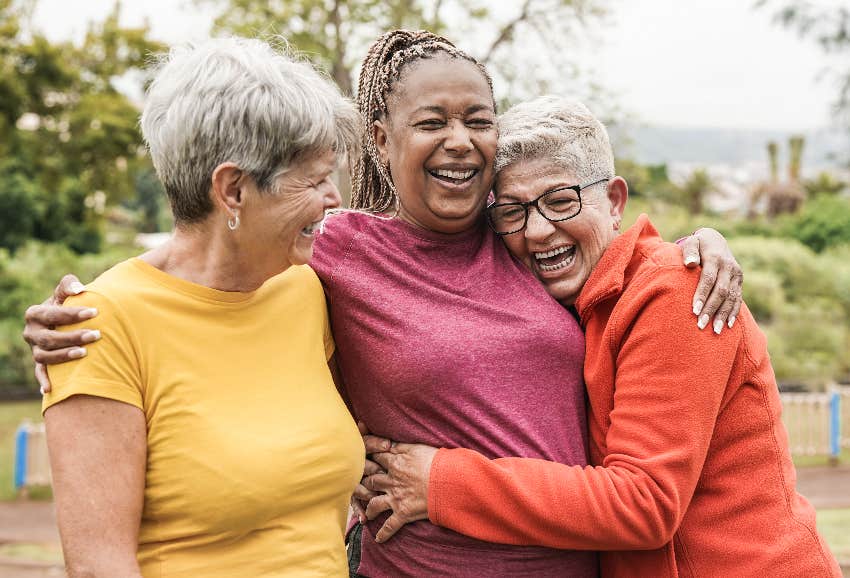People Who Feel Really Good About Themselves Have 5 Core Habits, According To Research
Research-backed tips to feeling as good as you can about yourself.
 Yingchou Han | Unsplash
Yingchou Han | Unsplash Unfortunately, mental health issues are on the rise. If you suffer from depression or another mental illness, you aren't alone. It can happen to anyone. Trying to feel happy again when you're feeling depressed can seem impossible, but there is hope to make you feel better, and it begins with these feel-good-about-yourself habits, all backed by research.
Tell yourself: it's okay to take care of you. It is not selfish to take care of yourself. If you don't, you'll eventually crash.
People who feel good about themselves have these core habits:
1. They take care of the basics
You need at least 8 hours of sleep every night. You need to drink plenty of water and eat nutrient-rich foods. I know this sounds obvious, but it’s easy to overlook. I know it’s more convenient to stop at the drive-thru on the way home from work, but there aren’t very many nutrient-rich foods there.
Make exercise a habit in your life. Make sure you get some natural light, if possible. These are important, make sure you don’t overlook them.
2. They stay away from negative people
 Jose Calsina / Shutterstock
Jose Calsina / Shutterstock
Indeed, they will only bring you down. This also means limiting the amount of time that you watch the news. There is never good news on the news. This can easily bring you down, and make you feel like the world is horrible.
Stay around positive people. Start to notice the good that is happening in the world. Distancing yourself from negative people can significantly benefit your mental health by reducing stress, improving mood, boosting self-esteem, and protecting against the spillover effect, where negativity from others can influence your outlook and behaviors.
A 2010 study concluded that surrounding yourself with positive influences can create a healthier and happier life.
3. They don't take on more than they can handle
This doesn’t mean that you're a quitter. Take a good hard look at your life. What can you trim?
How many marathons do you need to run in? How many organizations do you need to volunteer for? How many extra work projects can you take on at the office?
Do you need to remodel your entire house right now? Learn to say no, you will feel much better in the long run.
4. They make sure to have fun
 Sabrina Bracher / Shutterstock
Sabrina Bracher / Shutterstock
It’s easy to get caught up in work, the house, and the family. Your life may feel like a to-do list.
When was the last time you put having fun on your to-do list? This is one of those things that makes its way to the bottom of the list, or it may not even be on the list at all. Watch a comedy, spend time with friends that make you laugh, or get outside and go on a hike.
Making time for fun activities has significant mental and physical health benefits, including reduced stress, improved mood, enhanced creativity, increased social connection, boosted self-esteem, and even better cognitive function.
A 2020 study explained that this is largely due to the release of feel-good chemicals like dopamine and endorphins when engaging in pleasurable activities.
5. They don't feel ashamed about asking for help
Many people feel embarrassed about feeling depressed. There is no reason to feel this way. The best thing you can do is talk to someone about it. You can’t keep everything in. It will eventually come out as a headache, stomach ache, or feeling depressed.
If you've made it to this point in reading this article, then I am proud of you for carving out a couple of minutes for you. Start with just one of these tips today. It's true, small steps do lead to big steps.
The brain is a muscle. By using these tips, you're rewiring the brain. You'll start to see positive changes in your life, and this will help you start to feel better about yourself.
Mental health issues are nothing to take lightly. If you find that this doesn't help, then seek professional help immediately.
If you or somebody that you know is experiencing a mental health crisis, there is a way to get help. Call SAMHSA’s National Helpline at 1-800-662-HELP (4357) or text "HELLO" to 741741 to be connected with the Crisis Text Line.
Lianne Avila is a Licensed Marriage & Family Therapist. She is dedicated to helping couples and has completed Levels 1, 2, and 3 at The Gottman Institute.

